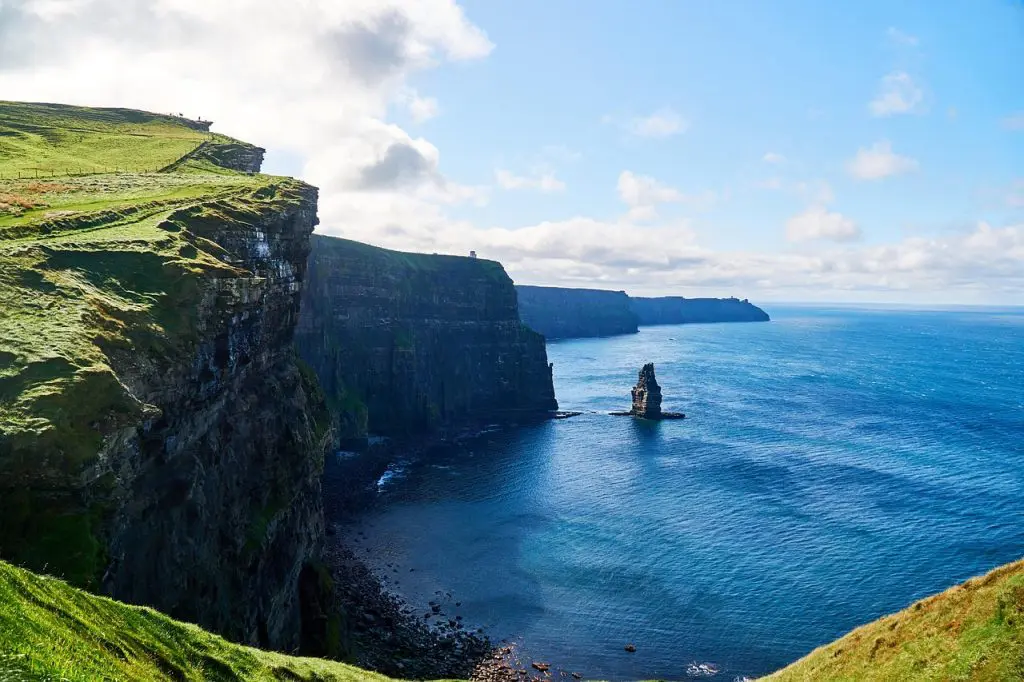
Restoring Native Flat Oyster Reefs: A New All-Island Project to Boost Coastal Resilience Researchers from Trinity College Dublin are collaborating on a new €1.5 million all-island project, funded by the Marine Institute, to restore native flat oyster reefs and strengthen coastal resilience. The five-year project, known as BRICONS, will evaluate selected sites for oyster reef […]
Researchers from Trinity College Dublin are collaborating on a new €1.5 million all-island project, funded by the Marine Institute, to restore native flat oyster reefs and strengthen coastal resilience. The five-year project, known as BRICONS, will evaluate selected sites for oyster reef restoration along the coastlines of Ireland and Northern Ireland.
Led by Dr Paul Brooks from the School of Biology and Environmental Science at University College Dublin (UCD), BRICONS brings together experts from UCD, Trinity College Dublin, Atlantic Technological University, and Queen’s University Belfast. The project will create pilot restoration sites to demonstrate how oyster reefs can serve as effective Nature-Based Solutions (NbS) for managing coastal change and supporting marine biodiversity.
The project aims to:
Assess suitable coastal sites for native flat oyster reef restoration
Test how oyster reefs can stabilise sediments, improve biodiversity, and enhance water quality
Explore how these reefs can act as a natural buffer against climate impacts
Support sustainable use of harbours and ports
Build research capacity through five funded research positions across partner institutions
BRICONS contributes to Ireland’s commitments under the EU Nature Restoration Law, which requires Member States to prepare National Restoration Plans for habitats such as native flat oyster reefs. The project also aligns with the Marine Institute’s Marine Research Programme, funded by the Government of Ireland.
Prof. Nessa O’Connor, Professor of Zoology at Trinity’s School of Natural Sciences, emphasised the importance of understanding how changing coastal conditions affect oysters:
“Our native oysters have been almost wiped out across Europe and now restoration efforts must consider their changing environment. At Trinity, we will be testing how our native oysters respond to changes in our coasts, such as warming oceans, acidification and emerging contaminants. This research is essential to design better restoration practices, which are vital to improve the resilience of our coasts.”
She added that restoring habitats created by living organisms, such as oyster reefs, not only enhances biodiversity but also improves water quality and provides an element of protection from storms.
Dr Paul Brooks, the project coordinator, explained:
“This project aims to evaluate how nature-based solutions (NbS) such as oyster reef restoration can enhance the resilience of our coasts and marine ecosystems. We will assess how these reefs can stabilise sediments, improve biodiversity, enhance water quality, and provide a natural buffer to the impacts of climate change all while supporting the sustainable use of our harbours and ports.”
Dr Niall McDonough, Director of Policy, Innovation and Research Services at the Marine Institute, highlighted the significance of collaboration:
“The Marine Institute is delighted to support the BRICONS project, which exemplifies the strength of North–South collaboration and the value of science in shaping sustainable coastal management. Restoring native oyster reefs offers an exciting opportunity to enhance biodiversity, improve ecosystem resilience, and deliver real climate action through nature-based solutions.”
Through strong partnerships with Irish ports, harbour authorities, and coastal community groups, BRICONS will demonstrate how restoring native flat oyster reefs can protect coastlines while supporting local biodiversity and livelihoods. The project represents a key step in advancing sustainable, nature-based coastal management across the island of Ireland.
As BRICONS progresses over the next five years, the research team will continue to monitor and evaluate restoration sites to identify best practices for long-term reef recovery. These pilot projects will generate valuable data on how native flat oyster reefs respond to environmental pressures such as warming seas, acidification, and pollution. The findings are expected to inform Ireland’s National Restoration Plan and contribute to broader European efforts under the EU Nature Restoration Law.
The project will also strengthen research collaboration between institutions across Ireland and Northern Ireland, creating new opportunities for scientific exchange, student training, and community engagement. By integrating ecological science with coastal management, BRICONS aims to demonstrate how nature-based solutions can play a pivotal role in restoring marine ecosystems and supporting climate adaptation.
The BRICONS project represents a major step forward in restoring one of Ireland’s most valuable but vulnerable marine habitats, the native flat oyster reef. Through collaboration between UCD, Trinity College Dublin, Atlantic Technological University, and Queen’s University Belfast, and with the support of the Marine Institute, the initiative embodies a truly all-island approach to marine restoration.
By combining cutting-edge research with local engagement, BRICONS will not only help rebuild lost oyster reefs but also strengthen the resilience of coastal communities and ecosystems. In doing so, it underscores the potential of science-driven, nature-based solutions to protect biodiversity, improve water quality, and safeguard coastlines for generations to come.
At All-Ireland Sustainability, we’re committed to building a greener, fairer island, together. Stay informed on the latest environmental initiatives, community action, and policy developments shaping sustainability across Ireland, North and South.
👉 Sign up for our newsletter today and be the first to hear about upcoming events, expert insights, and ways to get involved.
Whether you’re a seasoned advocate or just starting your journey, new members are always welcome.
Subscribe now and be part of the All-Ireland Sustainability Membership.
Copyright © 2026. All Ireland Sustainability
Webdesign & Development Northern Ireland 2b:creative